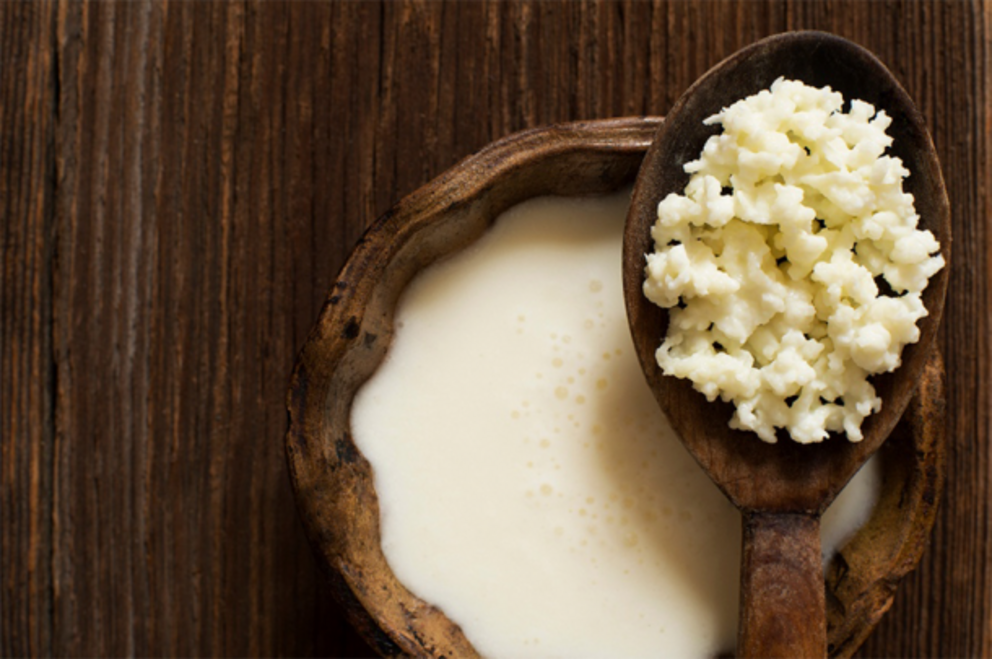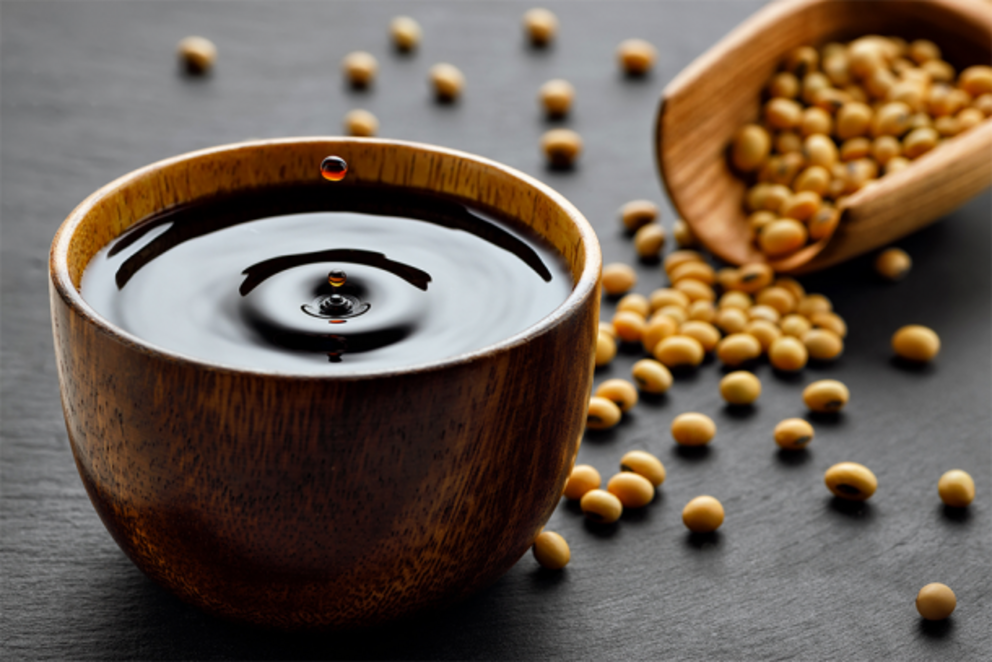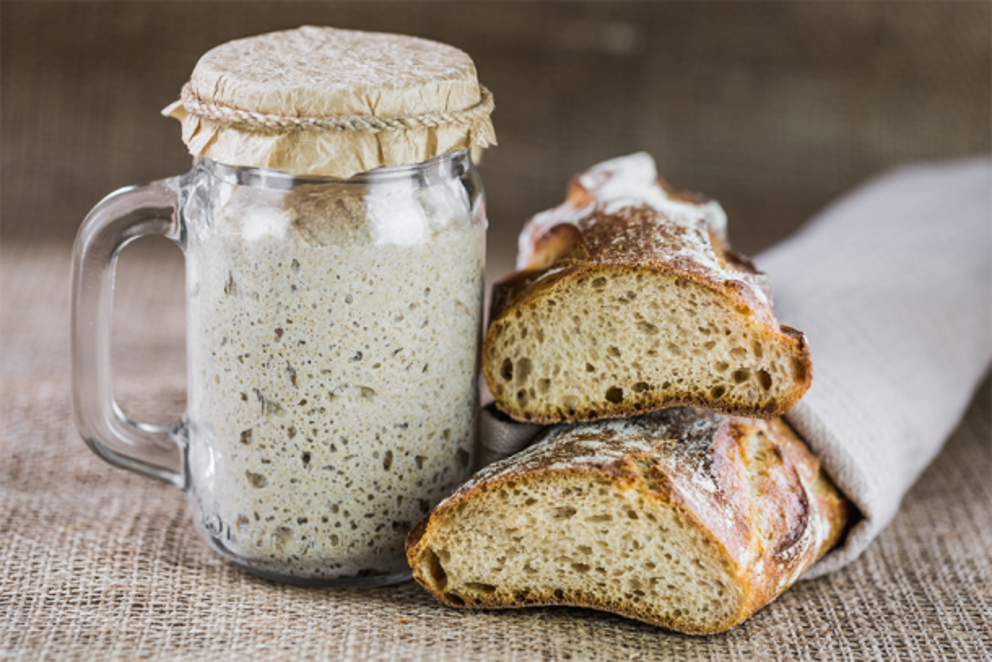Medicinal microbes of our ancestors: tracing the history of probiotics
Top image: Throughout history probiotic bacteria has been used to attain good health, even if ancient cultures did not yet understand the science behind why they worked.
In order to understand the history of probiotics, one needs to imagine a time before modern medicine, when people looked to nature to heal their ailments. Many ancient civilizations consumed fermented foods and drinks that contained beneficial bacteria, known as probiotics, such as yogurt, kefir, sauerkraut, kimchi and miso.
Though you are likely familiar with probiotics today, ancient people didn’t fully understand why these foods were as healthy as they were. Yet, they still discovered and reaped the benefits of them. Probiotics have always been a central part of food creation, from their use in ancient times to their current status as a popular dietary practice .
 Milk kefir, or fermented milk, has been around for thousands of years, a prized addition to the diet of the North Caucasus. This is just one of many additions to the long history of probiotics.
Milk kefir, or fermented milk, has been around for thousands of years, a prized addition to the diet of the North Caucasus. This is just one of many additions to the long history of probiotics.
Unlocking the Ancient Benefits of Probiotics
So, you’ve probably heard of probiotics, especially if you eat lots of foods like yogurt or kimchi. If you’re not familiar, probiotics are tiny living organisms that are actually quite good for you to eat! Most probiotics are specific types of bacteria, though yeasts are also sometimes used as probiotics depending on the food being eaten.
We actually have lots of bacteria in our gut that help us digest food, and probiotics can help keep our microbiome healthy over time. Taking probiotics can also keep bad bacteria in check and help our bodies create vitamins, break down medications and build up our immune system.
Common examples of foods with probiotics include yogurt, sauerkraut, miso, kefir and kombucha. If those foods aren’t your favorite, probiotics now come in lots of over-the-counter supplements, so you can get the benefits without needing a full meal.
Although the concept of bacteria was not yet understood, many cultures throughout history consumed fermented foods that we now know contained probiotics. These foods were usually developed in an effort to preserve food for longer periods of time, but people soon noticed that eating them also improved digestion and overall health. Through trial and error, ancient people discovered that fermented foods provided numerous health benefits and passed down their knowledge through generations.
However, fermented foods weren't just used for preservation during the history of probiotics - they were also believed to have medicinal properties. In ancient Greece and Rome, fermented milk was used to treat digestive and intestinal disorders, as well as wounds and infections.
In traditional medicine systems such as Ayurveda and traditional Chinese medicine , the importance of gut health was recognized, and the consumption of fermented foods was recommended to promote a healthy digestive system. These foods were believed to help maintain a healthy balance of gut bacteria and to promote overall health and well-being.
Beyond health, many ancient people also enjoyed foods with probiotics due to their unique flavor. Many foods with probiotics have strong flavors unattainable without the process of fermentation. Probiotics were sometimes used simply as a way to spruce up an unappetizing meal, rather than for health benefits alone.
In China, for example, pickles and soy sauce were commonly used to add flavor to otherwise dull meals. The purpose of these foods quickly shifted from convenience to benefit, and many became cultural staples in their country of origin.
 Another addition to the long history of probiotics is soy sauce, created by fermenting soy beans to produce probiotics which feed friendly bacteria in the gut.
Another addition to the long history of probiotics is soy sauce, created by fermenting soy beans to produce probiotics which feed friendly bacteria in the gut.
From Kimchi to Kombucha: How Ancient Cultures Used Probiotics
Foods that were considered probiotics have been made and eaten for centuries. However, it is unclear how or when the first discovery of probiotic benefits was first made. It is likely that some people suspected benefits from certain foods over time, and that eventually this wisdom was passed down through the generations. Each country has its own small history of using probiotics, all of which are incredibly fascinating.
Some of the most common types of probiotics are fermented milk products such as yogurt and kefir. These foods were consumed in ancient civilizations such as the Greeks, Romans and Egyptians for their perceived health benefits.
The Greeks and Romans believed that fermented milk could cure digestive and intestinal disorders, and it was also used as a healing agent for wounds and infections. Though the exact process of how this milk was fermented was not well documented, historians believe that raw milk was left out at room temperature until it curdled naturally. Once it was curdled thanks to the bacteria present in the milk, it was ready for use.
Ancient Egyptians , on the other hand, often ate probiotics through fermented foods such as bread and beer. In fact, the earliest record of sourdough bread is from the ancient Egyptians around 1500 BC. While the creation of sourdough was likely an accident at the time (yeast spores may have gotten into dough accidentally through the air, resulting in the first-ever sourdough loaf!), its continued creation was certainly intentional.
In ancient India, a fermented milk product called lassi was a popular drink, and it was believed to have medicinal properties. Lassi is typically created by combining yogurt, water, fruit and various spices before letting the drink ferment to gain its health properties. The ancient Indian medical system known as Ayurveda also recognized the importance of gut health, and it was recommended to sick patients that eating fermented foods would improve digestion and overall health.
 Starter dough and sourdough bread, known to keep your gut healthy.
Starter dough and sourdough bread, known to keep your gut healthy.
Nourishing Guts of the Future Throughout the History of Probiotics
The use of probiotics has shifted greatly within the last century or so. In the 1930s and 1940s, scientists started to identify specific strains of bacteria that were beneficial to humans. For example, Lactobacillus acidophilus was shown to be effective in treating diarrhea and constipation in many patients.
In the 1960s and 1970s, interest in probiotics continued to grow as researchers began to look at the specific effects of antibiotics on our gut microbiomes. They soon found that antibiotics disrupted the balance of gut bacteria, which led to an overgrowth of harmful bacteria in the gut. This resulted in an increased risk of infection, as well as some gastrointestinal symptoms such as diarrhea.
Probiotics were seen as a way to restore the balance of gut bacteria and prevent these negative effects. Since then, scientists have continued to learn more about the benefits of probiotics and how they can be used to treat certain illnesses.
Across the ages, people have indulged in the tangy magic of fermented foods and drinks with probiotics. While the use of probiotics in ancient times was based on traditional knowledge and experience, only in the modern era have scientists begun to fully understand the benefits of these special microorganisms.
Nonetheless, the use of fermented foods and drinks containing probiotics has been a part of human history for thousands of years, and it continues to be a popular (and delicious!) dietary practice even today.
For full references please use source link below.

